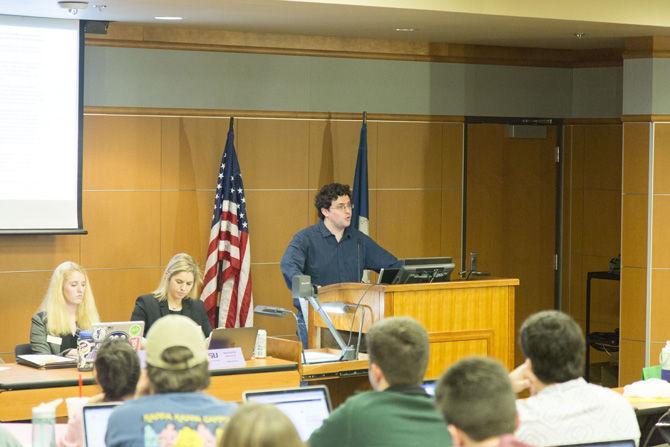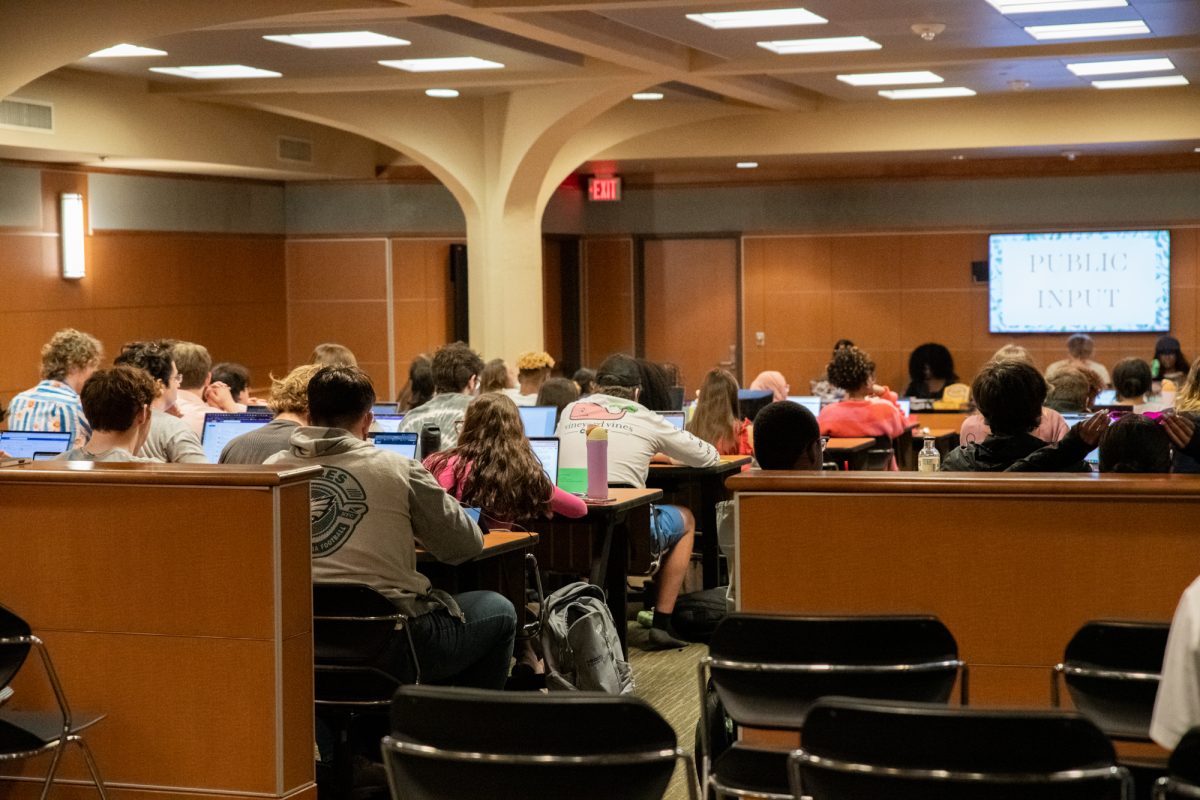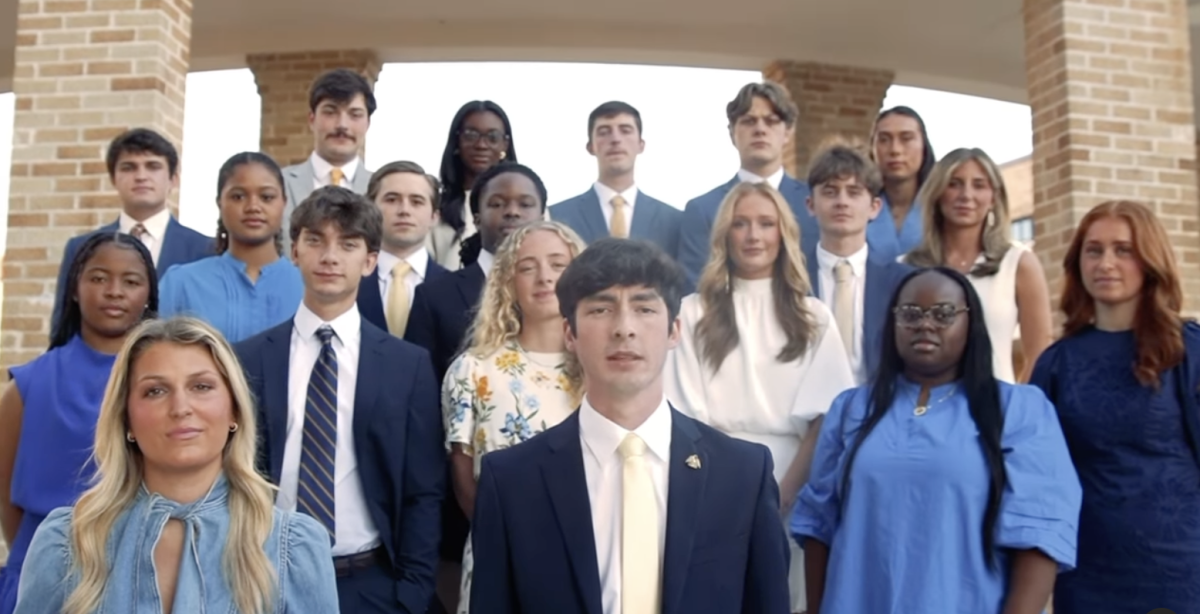A hotly debated Student Senate bill urging for the revocation of President Donald Trump’s immigration executive order was referred back to committee on a 31-30 vote Wednesday night.
The referral came after a roughly three-hour debate, during which senators voiced concerns the bill overstepped the Student Senate’s non-partisan boundaries and didn’t appropriately offer support to the affected students. The tie-breaking vote was cast by Senate speaker Alexandra de Gravelle, and the bill, SGR No. 6, could return to the Senate floor next week.
Graduate School senator Jordan Landry said he authored the bill in an effort to make a strong statement against Trump’s executive order as a show of support for the international students affected by the order. Landry said he felt a gentle, supportive statement wasn’t sufficient to address the severity of the situation.
University College of Advising and Counseling senator Chandler Clinkingbeard said the bill was problematic because its debate called upon senators’ personal political biases, while likely making little practical effect.
“At the end of the day this bill is a pat on the back from an invisible hand,” Clinkingbeard said.
College of the Coast and Environment senator Amanda Fontenot said, practicality aside, this is an important statement and one that can and should be made. Fontenot said she came to the University because she was impressed by its diversity of thought and the demography in her college and that protecting that diversity is important.
Fontenot also said to her knowledge measures with little measurable practical application had been approved before, including one following the death of Mike VI.
“I think we thanked a dead tiger for their service, and I don’t think that tiger can actually feel that thanks, but I think this is definitely a speech and a statement that needs to be said and can be said,” she said.
E.J. Ourso College of Business senator John Fourcade also raised political concerns, citing the campus’s mock presidential election results as a potential deterrent to supporting the bill, noting that 47.5 percent of voting students supported Trump and likely supported his policies.
As a main issue of Trump’s campaign, students supporting Trump likely understood his stance on immigration and knew an action like this was possible, he said. Making a statement challenging the executive order could also erode the University’s relationship with lawmakers in the state’s Republican dominated legislature, he said.
Those relationships are crucial when budget cuts to higher education are on the table, he said.
Landry said the bill wasn’t inspired by political motives, and that he would have authored similar legislation regardless of the president’s political affiliation. The executive order is wrong and needs to be challenged, he said.
“We talk about representing our own all the time…sometimes that means we’ve gotta stick up for them and part of sticking up for them is diagnosing the problem,” Landry said. “Sometimes you’ve gotta tell people, ‘Hey, this is wrong. Stop this.’”
The timeliness of the bill was also debated. Graduate School Association College Council president Vernon Dunn questioned whether the measure was necessary given the temporary stay placed on executive order.
On Feb. 3, a federal judge in Seattle placed a stay on the order, halting its enforcement nationwide. On Feb. 9 the Ninth Circuit Court of Appeals denied an appeal from the president and a vote to reconsider the appeal is currently pending. While the stay is in place, refugees and immigrants from the seven targeted countries may travel to and from the United States.
Despite extensive debate, the room remained divided on the bill. Potential revisions will be considered when the bill returns to the Student Life, Diversity and Community Outreach Committee next week.








